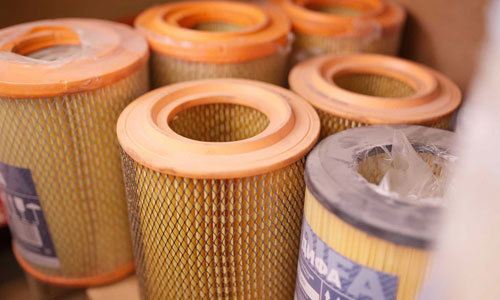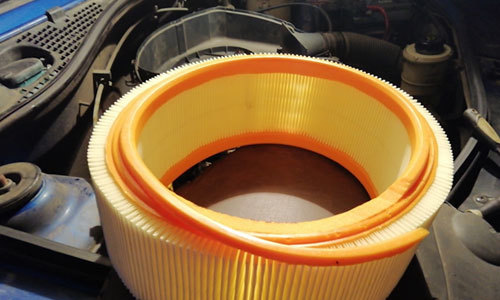How to Choose the Right Hydraulic Oil Filter Cartridge for Your Equipment
2025-09-11
How to Choose the Right Hydraulic Oil Filter Cartridge for Your Equipment
When it comes to maintaining the longevity and efficiency of hydraulic systems, the hydraulic oil filter cartridge plays a pivotal role. As hydraulic machinery operates under high pressure and constant motion, ensuring that the oil circulating within remains free of contaminants is essential. This guide will provide you with the insights needed to select the perfect hydraulic oil filter cartridge for your equipment.
Understanding Hydraulic Oil Filters and Their Importance
Hydraulic oil filters are designed to remove contaminants from the hydraulic fluid, ensuring that the system operates smoothly. Contaminants can include dirt, metal particles, and other debris that can cause significant damage over time.
The Role of Hydraulic Oil Filter Cartridges
Hydraulic oil filter cartridges are crucial components within the filtration system. They trap and hold various impurities, preventing them from circulating through the hydraulic system. Choosing the right cartridge can significantly impact system performance and longevity.
Why Proper Filtration Matters
Effective filtration helps maintain the viscosity of the hydraulic fluid, reduces wear on components, and minimizes the risk of system failure. Without proper filtration, contaminants can lead to increased maintenance costs and unplanned downtime, which can be detrimental to any operation.
Key Factors to Consider When Choosing Hydraulic Oil Filter Cartridges
Selecting the right hydraulic oil filter cartridge involves several considerations. Here, we will discuss the most critical factors that can influence your choice.
1. Filter Rating and Micron Size
The filter rating, often expressed in microns, indicates the size of the particles that the filter can effectively trap. A lower micron rating implies better filtration but may also lead to higher pressure drops. Understanding your system's requirements is crucial for making the right choice.
2. Filter Type
There are primarily two types of hydraulic oil filters: inline filters and return line filters. Inline filters are installed in the supply line to the hydraulic components, while return line filters are placed in the return line, filtering the oil before it re-enters the reservoir. Assessing your system layout will help determine which type is most suitable.
3. Flow Rate
The flow rate of your hydraulic system is another critical factor. A filter cartridge must be able to accommodate the system's flow rate to ensure that it does not become a bottleneck. Choose a cartridge that matches or exceeds your system's flow requirements.
4. Chemical Compatibility
Different hydraulic fluids have varying chemical compositions. It is vital to ensure that the filter cartridge material is compatible with the type of hydraulic oil you're using to prevent degradation of the filter and contamination of the fluid.
5. Pressure Drop Across the Filter
A pressure drop occurs when fluid flows through the filter, and it can impact system efficiency. Filters with excessive pressure drops can lead to reduced system performance. Always consider the manufacturer's guidelines for optimal performance ratings.
6. Operating Environment
The environment in which your hydraulic system operates can also influence filter selection. Factors such as temperature, humidity, and the presence of contaminants should all be taken into account. For example, in high-dust environments, filters with higher dirt-holding capacity may be necessary.
Steps to Choosing the Right Hydraulic Oil Filter Cartridge
Now that we understand the key factors, let’s delve into the systematic approach to choosing the right hydraulic oil filter cartridge.
Step 1: Assess Your Equipment Requirements
Begin by evaluating your hydraulic system's specifications. Check the equipment manual for recommendations on filter ratings, types, and compatibility.
Step 2: Determine the Operating Conditions
Evaluate the operating conditions of your hydraulic system. Consider the typical pressure and temperature ranges, as well as any potential contaminants that may affect performance.
Step 3: Evaluate Filter Specifications
Look for filters that meet your system's specifications regarding flow rate, micron size, and pressure drop. Cross-reference with the manufacturer’s recommendations to ensure compatibility.
Step 4: Consult with Experts
When in doubt, consult with industry experts or filter manufacturers. They can provide valuable insights based on your unique requirements and help you navigate the options available.
Step 5: Test and Monitor
After selecting a filter, it's essential to monitor your system's performance closely. Regularly check for signs of contamination and pressure drops to ensure your filter is functioning optimally.
Common Mistakes to Avoid When Selecting Hydraulic Oil Filter Cartridges
Even seasoned professionals can make mistakes when selecting hydraulic oil filter cartridges. Here are some common pitfalls to avoid:
1. Ignoring Manufacturer Specifications
Always refer to the equipment manufacturer's recommendations. Ignoring these guidelines can lead to compatibility issues and reduced performance.
2. Choosing the Wrong Micron Rating
Opting for a filter with a lower micron rating than necessary can cause unnecessary strain on the hydraulic system. Ensure that you select a rating that balances filtration efficiency with system flow requirements.
3. Neglecting Regular Maintenance
Even the best filter cartridges will fail if not properly maintained. Regularly check and replace filters as necessary to ensure optimal system performance.
Frequently Asked Questions (FAQs)
1. How often should I replace my hydraulic oil filter cartridge?
The replacement frequency depends on the operating conditions and the type of hydraulic fluid used. Generally, it is recommended to check the filter every 200-500 operating hours.
2. Can I use a generic filter cartridge instead of the original?
While generic filters may fit, they might not meet the specific requirements of your system. Always consult with a professional before making substitutions.
3. What are the signs of a failing hydraulic oil filter?
Common signs include increased pressure drop, reduced system efficiency, and noticeable contaminants in the hydraulic fluid.
4. How do I know if my filter cartridge is the right size?
Check the specifications outlined in your equipment’s manual. If in doubt, consult the manufacturer or a filtration specialist.
5. Can hydraulic oil filters be cleaned and reused?
Some filters are designed for cleaning and reuse. However, others are meant to be replaced. Always refer to the manufacturer’s guidelines before attempting to clean a filter cartridge.
Conclusion
Choosing the right hydraulic oil filter cartridge is not just a matter of selecting a component; it’s a critical investment in your equipment's performance and longevity. By understanding the essential factors, following a systematic approach, and avoiding common pitfalls, you can ensure optimal filtration and system efficiency. Remember, a well-maintained hydraulic system leads to increased productivity and decreased downtime. Make informed decisions, consult with experts when necessary, and keep your machinery running smoothly for years to come.
Key words:
Related News
How often does the air filter change?
2024-05-22
What are the car filters? When do car filters need maintenance?
2024-05-22
The choice of filter manufacturers should be considered comprehensively
2024-05-22










